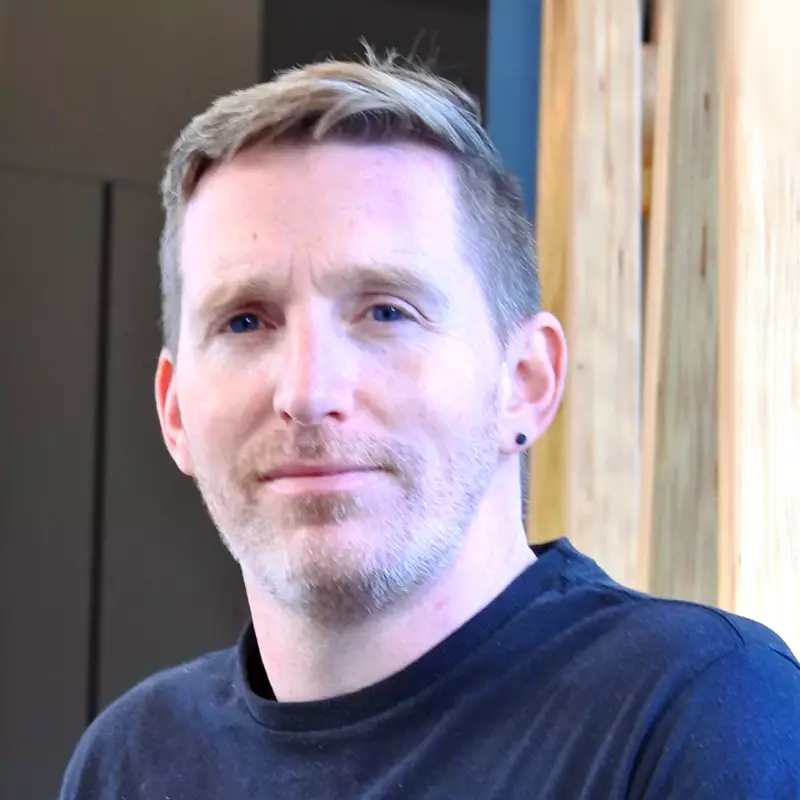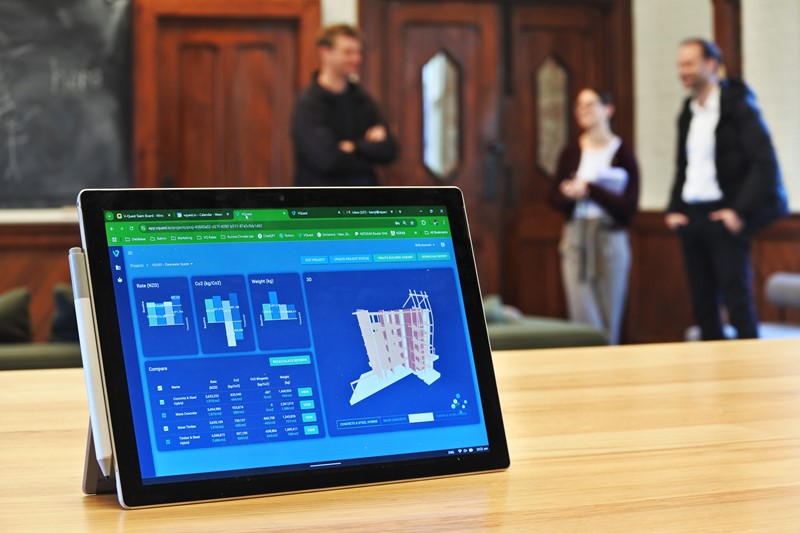Reshaping building design for a sustainable future
V-Quest, a Christchurch-based building design tech startup, is reshaping the construction landscape with an innovative approach to efficient building design. With time savings for designers, reduced costs for developers – and better environmental outcomes – the company is poised for its next stage of expansion into Australian and US markets.
Founded in 2022 by quantity surveyors Barry Lynch and Eoin McLoughlin, V-Quest tackles an enormous global challenge – the construction industry is responsible for up to 24% of global emissions.

From carbon challenge to startup solution
The idea for V-Quest was born when the Ministry for Primary Industries (MPI) introduced the founders to the Labour Government’s proposed carbon legislation for the building sector. “MPI wanted to know if we could apply our data models to carbon, so we tested it and discovered that cost, carbon, and material weight were interconnected,” Lynch explains. “Pushing on one would affect the others, revealing missed opportunities in the design process.”
With the help of high-growth startup organisation Ministry of Awesome, the pair founded V-Quest. The company’s software allows engineers, architects, and developers to optimise designs from the moment they begin drawing. Unlike other tools that analyse carbon only at specific design milestones, V-Quest provides analysis with minimal data, enabling carbon optimisation from the start of the design phase.
Designing with data from day one
Initially, V-Quest’s software allowed developers to compare the total cost of building with various materials. The company soon expanded its focus, incorporating carbon data and other key metrics. One successful project saw V-Quest help a developer reduce 3.75 million kg of carbon – equivalent to 180,000 trees planted, whilst also reducing the build cost by $750,000. “We showed them how to improve the design in just 48 hours,” says Lynch.

Barry Lynch - co-founder, V-QuestArchitects typically use vision and experience when making design decisions. With V-Quest, they can add data analytics to supercharge those skills. We are confident there are considerable missed opportunities in most buildings to reduce cost and carbon emissions.
Proving that green can be cheaper
He says V-Quest is proving sustainability does not have to be a cost barrier for businesses. “There are opportunities to find the ‘carbon cost tipping point.’ This is the point where carbon reduction starts to incur additional costs. Our software helps identify this point, showing you the low-cost or no-cost carbon reductions compared to where you could go if you decided to invest more.”
Navigating policy shifts and global growth
Today, V-Quest works across sectors like healthcare, airports, and residential developments. However, their growth hasn’t been without challenges. A change in Government saw Labour’s carbon legislation scrapped, shrinking the market for V-Quest in New Zealand. This has prompted an expansion to Australia, with a newly opened office in Sydney. Despite New Zealand’s carbon legislation setbacks, Lynch remains optimistic. “We're staying in Christchurch, continuing our efforts here with an office, but New South Wales will be where our concentration is.”

Backing Christchurch Economic Ambition
He says more and more developers are adopting sustainability without the prompt of compliance, and points to the Christchurch Economic Ambition as an example of how local government can take a leadership role in the space of sustainable construction.
"Christchurch still has many vacant sites and ongoing development. With new people arriving, housing subdivisions, and commercial buildings opening, there's a significant opportunity to make an impact with new projects."
He says the Economic Ambition aligns perfectly with the company’s vision. “The Ambition is about being as sustainable as possible, but still feasible from an economic perspective. That's exactly what we do. Rather than pushing sustainability to the point where a project becomes unaffordable – which often happens when architects and engineers design without considering data – we provide the data directly in the design process. This allows you to make informed decisions, ensuring the project remains feasible.”
Christchurch roots, global vision
Lynch believes one of the things that positions Christchurch well is a startup culture driven by a 'bias to action.'
“New Zealand companies, particularly startups, have this unique ability to dive in and solve problems. They don't overthink – they just get to work. There’s a similar drive in many other startups here, especially those emerging from Ministry of Awesome. The level of expertise and the attitude here is unlike anything we've seen elsewhere."
His praise for Ministry of Awesome is unequivocal. "From the very beginning, they were incredibly supportive. We started with just a concept and a conversation, and from that point on, they were always there to help us. Having such resources on your doorstep is a huge advantage – mentors, investors, and the opportunity to connect with other startups that have already faced the challenges you're dealing with."
He says businesses looking to be more sustainable don’t need to aim for perfection. “If we can get everybody reducing carbon emissions by a small amount, it's going to be far more impactful.”


